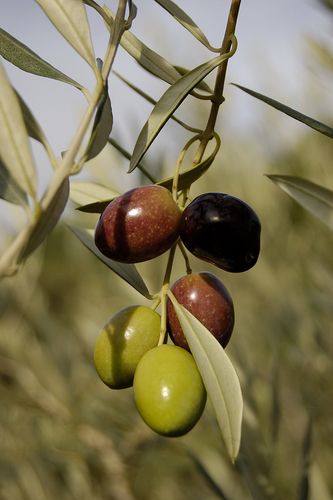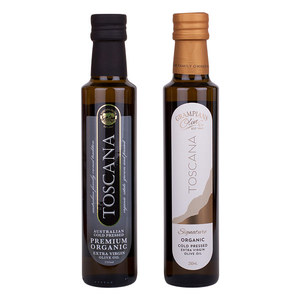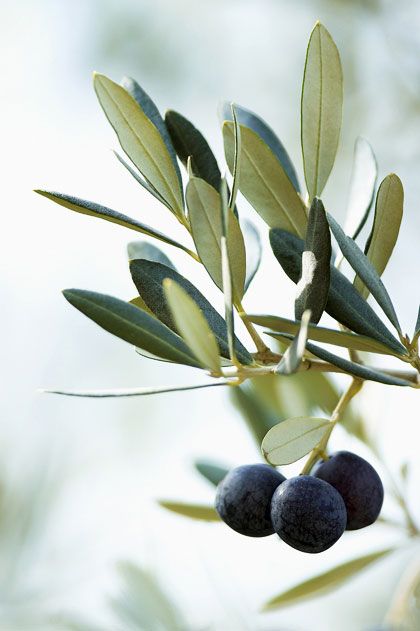The Due Diligence Series: 4 Questions to Ask when Buying Olive Oil
Guest User
I’m frequently asked about the brands of products I buy and use. I’ve devoted my life over the past decade, and made a living out of, researching and seeking out the best quality food, drinks, personal care products and household cleaning products. For what we put in, on and breathe into our bodies directly and profoundly impacts our health. To not be concerned about such things is a complete anathema to me. It’s why my nickname is the quintessential qualitarian.
This extensive investigative process is called due diligence. I know from my days as a corporate lawyer the importance of doing a thorough due diligence diligence before making an acquisition. We would have an extensive checklist of items to investigate when acting on behalf of a purchaser to ensure that their acquisition was fruitful. Without formalising it, you might have a list of questions that you ask when buying a house, a car or a pet. I do the same when buying anything that touches my body (and on the occasions that I don’t, I often regret it).
In my health coaching sessions I give my clients an extensive shopping list that lists all of my favourite brands of products in Sydney, Melbourne and the Gold Coast that they can buy in those areas. This is mighty convenient as I save them doing the exhaustive investigative work that I already have done. But what if you don’t live in those locations? And even if you do, what I feel is more empowering than handing someone such a list, is to arm them with the very questions to ask when purchasing products. This gives you the information you need wherever you are in the world to make savvy choices.
In my due diligence series of blogs, I’ll be covering all of the basic staples so that you have all the questions to ask when purchasing products. Often this involves making enquiries of the producer when the relevant information is not on the packaging. But the more people who ask these pertinent questions, the more that suppliers will respond accordingly.
I will also share my favourite brand for each product I will look at. There may of course be other brands which meet my due diligence questions but as Broth Bar & Larder is teeny tiny, I can only store one brand of any given item due to space restrictions. This is not a bad thing as it has forced me to hone in my due diligence enquiries to select the highest quality everything.
I’m kickstarting my due diligence series with the questions to ask when buying olive oil and I’m intentionally keeping the questions simple instead of going into song and verse.
Olive oil is one of my staple healthy fats. It’s one of the few fats that pretty much everyone worldwide, regardless of dietary philosophy, agrees is healthy. A high quality olive oil is rich in nutrients, antioxidants, flavour and is anti-inflammatory. Anti-oxidants combat 'free radicals', helping to slow the ageing process and prevent various diseases. Anti-oxidants also contribute to the shelf-life of olive oil and enrich its unique flavour.
I tend to use olive oil cold as a finishing oil for dressing (or should I say “drowning”) vegetables as opposed to cooking with it because it is primarily a monounsaturated fat meaning that it is not as heat stable as the saturated fats (i.e. there is one place in its molecular chain where oxygen can muscle in and cause the molecule to fall apart causing damage). On the rare occasions that I do cook with olive oil,I will use as low heat as possible.
Without further ado, set out below are the 4 questions I ask when buying olive oil to ensure the highest quality and full-bodied flavour:
1. Is it extra virgin? This should be labelled on the bottle. Extra virgin means three things: first pressed, cold pressed and an acidity below 0.8%. This criteria ensures an oil that is as unrefined as possible and of the highest nutritional (and flavour) quality.
To flesh out each of these three criteria in turn, cold pressing requires that chemicals and heat over 27 degrees Celsius (80 Fahrenheit) are not used to extract the oil from the fruit. Cold pressing is important because, as mentioned above, heat over a certain temperature can damage the delicate properties of olive oil. Secondly, the International Olive Oil Council (IOOC) requires extra virgin olive oil to be first (cold) pressed. First pressing means that the olives were crushed and pressed only one time. The olive oil extracted from the first pressing is of the highest quality and purity. Thirdly, extra virgin also requires the oleic acidity of the oil to be between 0-0.8%. The lower the acidity, the better the quality. Acidity between 0.8-2% is virgin oil and not extra virgin. When olive oil isn’t extra virgin, many producers unfortunately like to use empty buzz words like “cold pressed” or “first pressed” on their labels for marketing with little truth or accuracy behind them. So ensure that your bottle of olive oil is first and foremost “extra virgin”. Pressing olives multiple times at high heat yields more oil out of the olives but also destroys much of the nutrition and creates a lower quality olive oil. Avoid anything sold as “light” olive oil as this means it is refined by chemical extraction and/or high temperature (and has nothing to do with calories). “Pure” olive oil is typically a blend of virgin olive oil and refined olive oil so I avoid it. Ditto for “deodorised” which is another word for chemical shit storm.
2. Is it certified organic?
If it is not certified, can the supplier confirm that the farming practices are organic in substance (i.e. no petrochemical fertilisers, herbicides, pesticides are used in the trees and soil)?
3. Is it in a dark (light proof) container?
Light oxidises olive oil (i.e. makes it turn rancid). I avoid anything sold in light bottles or in a spray can. Opt for a dark bottle, tin or cask (bag in a box).
4. Is it made in Australia?
To reduce food miles and to support local producers I prefer to buy Australian made where possible. Australia makes some terrific olive oil. (For those living overseas ask if is it made in locally in your country and if none exists in your locality then find the closest country).
Olive oil’s best storage temperature is around 20 degrees Celsius. Olive oil should be stored in a dark place place with a cool constant temperature such as a pantry away from direct heat and light. Always leave the cap on the bottle when not using it as oxygen also degrades olive oil. Olive oil is best not stored refrigerated because the change in temperature when taking it in and out of fridge damages its quality. A good test of whether an oil is purely olive oil or contains industrial seed oils (like vegetable, cottonseed, rice bran, grape seed, corn, sunflower, safflower, soy or canola oil – all which are in a word toxic and should be avoided at all expense) is to put a small amount in the fridge. Olive oil tends to go cloudy when refrigerated and hence doesn’t look very aesthetically pleasing. Which is precisely why producers of marinated products (often including organic ones!) will marinate products like goats cheese and olive oil in one of the industrial seed oils because they don’t go cloudy when refrigerated and hence look more attractive - so read labels carefully to ensure that only olive oil is used for marinating!! Ditto at food halls and delis- most items are marinating in industrial seed oils!!
Olive oil keeps for approximately 18 months after which time oxidisation accelerated and acidity increases. Best to buy in small bottles so that you use it up quickly unless you think you can go through it within 18 months. I personally buy in a 4L bulk tin container and decant into a smaller bottle that I keep in the kitchen cupboard for everyday use.
In terms of brands of olive oils, the brand I use and sell at Broth Bar & Larder is Toscana Olives as this brand meets all my due diligence questions. It is extra virgin (first cold pressed and has an acidity level of only 0.1%), certified organic, sold in dark bottles and is a family owned and operated business in rural Victoria. The olives are pressed on-site within hours of picking, which maximises antioxidants such as Vitamin E, phenolic compounds and carotenoids. Their olive oil meets and exceeds both Australian and international standards and they are proud signatories to the Australian Olive Industry Code of Practice. Their oil is routinely tested by an independent laboratory to ensure it meets the IOOC chemical and organoleptic standards for Extra Virgin Olive Oil. They have received numerous awards for their olive oil. This olive oil retails for $85/4L or $49.95/2L. It is not available via our online store but, like all our third party products, we can courier it to you if you email orders@staraniseorganic.com and prepay with your credit card.
Two of my favourite simple ways of using olive oil in the kitchen:
1. Drizzle on top of steamed or sautéed leafy greens (like silverbeet or Greek “horta” that I grew up on) with a good squeeze of lemon juice and a sprinkle of unrefined salt
2. Combine with balsamic vinegar to dip some quality sourdough bread into.
In addition to culinary uses, I use olive oil almost exclusively as my face and body moisturiser (with a few drops of Young Living essential oils). My skin loves it! I use the same brand of olive oil whether it’s as a finishing oil or for (rare occasion) cooking or as a face and body moisturiser. This means one less personal care product to buy as I’m using olive oil anyway for culinary purposes. I just decant a small amount in a small glass jar to keep in the bathroom. My rule is to not put anything on my skin that I can’t otherwise eat. I found much better results using olive oil than coconut oil as a skin moisturiser because the saturated fat molecules in coconut oil are much bigger and tend to just sit on the surface of the skin rather than deeply penetrate into the skin like olive oil does. Many people also put olive oil in their hair as an intensive hair treatment and wash it out the next day. Or leave in the tips of your hair to strengthen the ends. I recall my mum telling me that back in her village in Cyprus the women would rub olive oil in the roots of their hair every day to maintain their thick luscious plaits of black hair. This is the true meaning of natural beauty.
So there you have it. The first of my due diligence series.
Did you find this post helpful? Please leave your thoughts and questions in the comments below.





